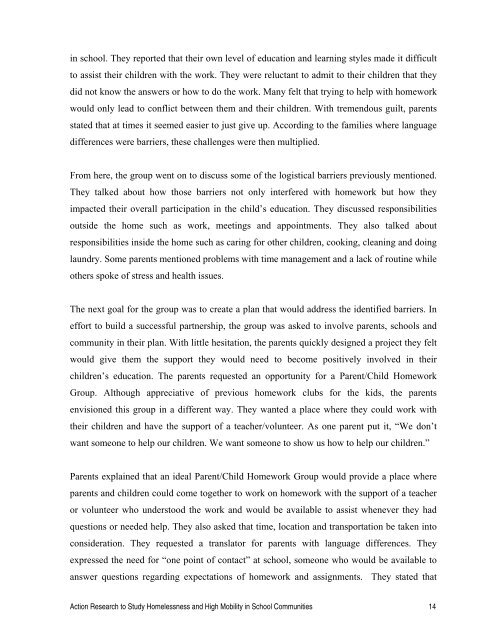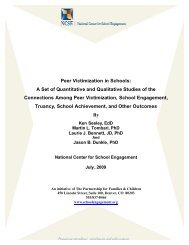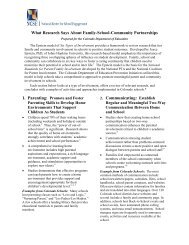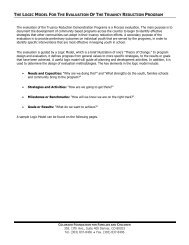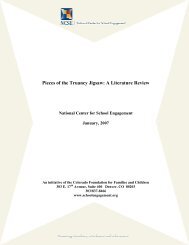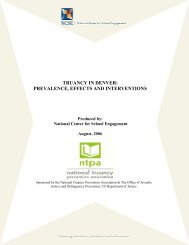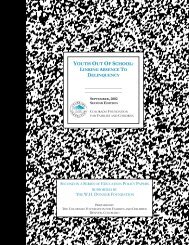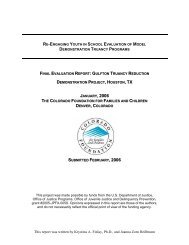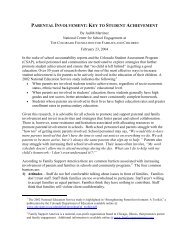Section 1: Academic Achievement - National Center for School ...
Section 1: Academic Achievement - National Center for School ...
Section 1: Academic Achievement - National Center for School ...
Create successful ePaper yourself
Turn your PDF publications into a flip-book with our unique Google optimized e-Paper software.
in school. They reported that their own level of education and learning styles made it difficult<br />
to assist their children with the work. They were reluctant to admit to their children that they<br />
did not know the answers or how to do the work. Many felt that trying to help with homework<br />
would only lead to conflict between them and their children. With tremendous guilt, parents<br />
stated that at times it seemed easier to just give up. According to the families where language<br />
differences were barriers, these challenges were then multiplied.<br />
From here, the group went on to discuss some of the logistical barriers previously mentioned.<br />
They talked about how those barriers not only interfered with homework but how they<br />
impacted their overall participation in the child’s education. They discussed responsibilities<br />
outside the home such as work, meetings and appointments. They also talked about<br />
responsibilities inside the home such as caring <strong>for</strong> other children, cooking, cleaning and doing<br />
laundry. Some parents mentioned problems with time management and a lack of routine while<br />
others spoke of stress and health issues.<br />
The next goal <strong>for</strong> the group was to create a plan that would address the identified barriers. In<br />
ef<strong>for</strong>t to build a successful partnership, the group was asked to involve parents, schools and<br />
community in their plan. With little hesitation, the parents quickly designed a project they felt<br />
would give them the support they would need to become positively involved in their<br />
children’s education. The parents requested an opportunity <strong>for</strong> a Parent/Child Homework<br />
Group. Although appreciative of previous homework clubs <strong>for</strong> the kids, the parents<br />
envisioned this group in a different way. They wanted a place where they could work with<br />
their children and have the support of a teacher/volunteer. As one parent put it, “We don’t<br />
want someone to help our children. We want someone to show us how to help our children.”<br />
Parents explained that an ideal Parent/Child Homework Group would provide a place where<br />
parents and children could come together to work on homework with the support of a teacher<br />
or volunteer who understood the work and would be available to assist whenever they had<br />
questions or needed help. They also asked that time, location and transportation be taken into<br />
consideration. They requested a translator <strong>for</strong> parents with language differences. They<br />
expressed the need <strong>for</strong> “one point of contact” at school, someone who would be available to<br />
answer questions regarding expectations of homework and assignments. They stated that<br />
Action Research to Study Homelessness and High Mobility in <strong>School</strong> Communities 14


